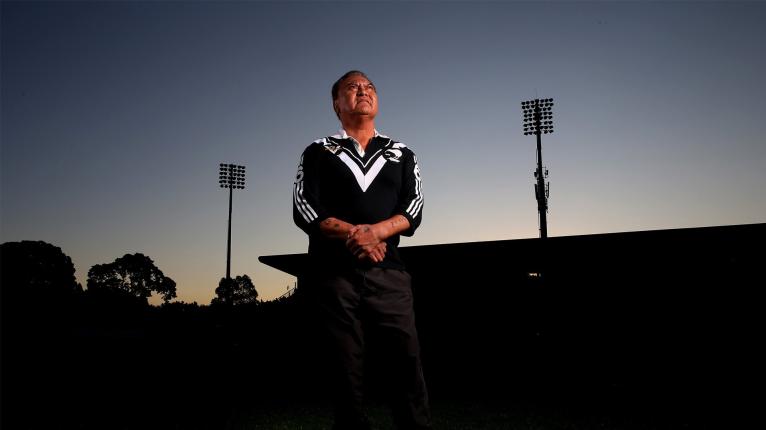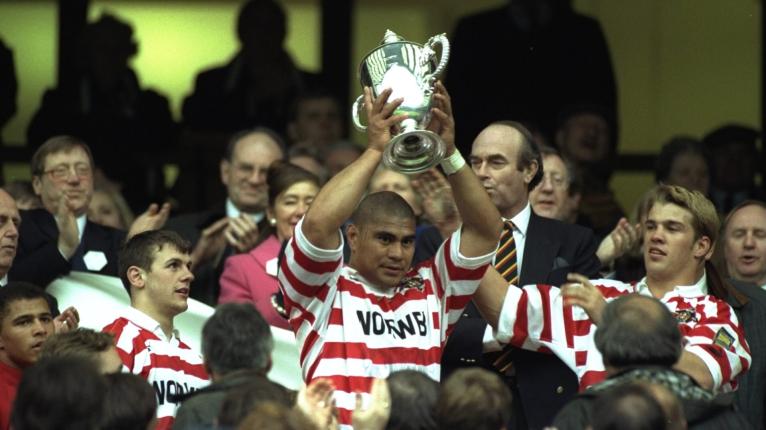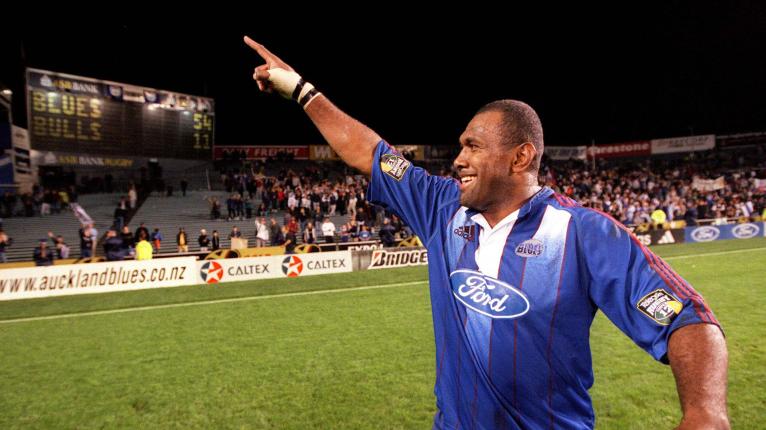In the heat of a thrilling clash between the Blues and Hurricanes came a moment of great sadness.
Still reeling from the death of Va’aiga Tuigamala, we learned of the passing of Joeli Vidiri.
In the space of 24 hours, we had lost two smiling giants of the game, adding to the sorrow already felt after the recent death of league legend Olsen Filipaina.
Whilst Filipaina was not a rugby player, it would be remiss not to pay tribute to a man who gave young Pasifika players in New Zealand the courage to chase their dreams. The son of a Samoan immigrant father and a Maori mother, Filipaina was a cult hero. He struggled in the harsh, often racist environment of 1980s Sydney Rugby League, but became Superman when pulling on the black jersey of New Zealand.
Life in New Zealand in the 70s had not been easy for Pasifika immigrants seeking work, education and a chance to make a life for their young ones, and it was people like Olsen Filipaina who emerged to embolden the next generation.

From that next generation came Va’aiga Tuigamala.
Born in Samoa, he came to New Zealand with his family as a youngster, and it wasn’t long before he was wreaking havoc on the rugby field, an unstoppable force for a Kelston Boys First XV alongside future internationals Apollo Perelini and captain Willie Lose, who convinced his coach to give the 14-year-old Tuigamala a shot after watching him go through a punishing solo fitness routine.
His passage to Auckland and New Zealand ranks was rapid. John Kirwan and Tuigamala were a big part of the breaking of the traditional wingers mould, using power, pace and lines of running to bust defences either out wide or through the middle.
This was an approach embraced by new All Black coach Laurie Mains in 1992, arguably Inga’s best year wearing the Silver Fern.
He continued the legacy of New Zealand stars at the great Lancashire club, but was just as influential off the field, notably helping save the wunderkind Jason Robinson from the temptations that threatened to ruin him.
But those were the days when the IRB was playing King Canute with the oncoming tide of professionalism in sport, and despite creative efforts to keep him in New Zealand, Inga inevitably joined the exodus to league. Whilst sad to see him go, no one really begrudged him the chance to earn the big bucks at Wigan.
He continued the legacy of New Zealand stars at the great Lancashire club, but was just as influential off the field, notably helping save the wunderkind Jason Robinson from the temptations that threatened to ruin him.
His return to rugby with Wasps and then Newcastle was timely, before loopholes were tightened by establishment unions fearing the rise of countries like Samoa, and he was able to play for the country of his birth at the 1999 World Cup.
After his career ended in 2002, he kept up a high profile on his return to New Zealand, in the boxing world, as a funeral director, in the church and in the community, culminating in being made a member of the New Zealand Order of Merit.

But his health deteriorated. He suffered from weight issues, from diabetes and from high blood pressure. He was shattered by the recent death of his younger sister in a workplace accident, and died suddenly, and tragically while preparing to take part in Celebrity Treasure Island.
Inga was one of those players who was as loveable as he was fearsome. He had a cheeky sense of humour, a smile as wide as the Manukau Harbour, and he had the gift of inspiration.
Just as much can be said of Joeli Vidiri.
Like Inga, he had a smile that could light up the darkest day.
He had suffered long and hard at the hands of deteriorating kidney health, but was never one to complain about the dialysis treatments that dominated his routine for so many years, the mountain of pills he had to take every day, and the complicated journey to a kidney transplant that we hoped would mean a longer life.
Vidiri’s end-to-end try against the Sharks in the 1997 semi, where he torched both Joos and Andre Joubert, was amongst the best solo efforts ever seen at Eden Park.
Joeli came to New Zealand in 1994, a gift from the Nausori Highlands, driven to succeed by the memory of his older sister who’d died in a roadside accident.
It wasn’t long before he was tearing it up for the Pukekohe club and then breaking records for a Counties Manukau team that already had one phenomenal winger in Jonah Lomu.
That double act was also a headline grabber in the early days of Super Rugby; Vidiri’s end-to-end try against the Sharks in the 1997 semi, where he torched both Joos and Andre Joubert, was amongst the best solo efforts ever seen at Eden Park.
Those early Blues-Sharks games were thrilling, but often fractious, and after copping a dreadful slur from one of the Natal players, Joeli lost his rag for the only time in his career, lining up and almost decapitating the next Natal player that came into view, the unfortunate, and entirely innocent Cabous van der Westhuizen.
He was a great Sevens player, the rules of the day allowing him to immediately switch to NZ in 1995, joining the likes of Lomu, Christian Cullen, Eric Rush, and Dallas Seymour in arguably the best lineup New Zealand has ever had.

Changing nations for test rugby was another matter, and sadly it was during the requisite three-year stand-down period that he played the best rugby of his career. By the time he was finally able to suit up for his new country in 1998 he was starting to battle with a loss of energy and concentration. Unbeknown to anyone he was, like Jonah, feeling the onset of kidney disease, and he was never quite the same again.
After his career prematurely ended at 27, he gave back as coach of some very good Counties Sevens teams, and then later becoming a very popular figure at his local Mitre 10 hardware depot.
In the end, it was Covid that got him, newly married, but unvaccinated in the USA, and despite his bravery, he succumbed after a succession of heart attacks.
I was lucky to have known Joeli well. He always had a smile on his face, always had time for a chat. He was a beautiful soul, and to have to relay the news of his passing during the Blues-Hurricanes game was heartbreaking.
Inga and Joeli. Two men who could light up a game with a brilliant try, and light up the world with an equally brilliant smile.
Gone to join their brother Jonah. That is some team they are putting together.



Comments
Join free and tell us what you really think!
Sign up for free